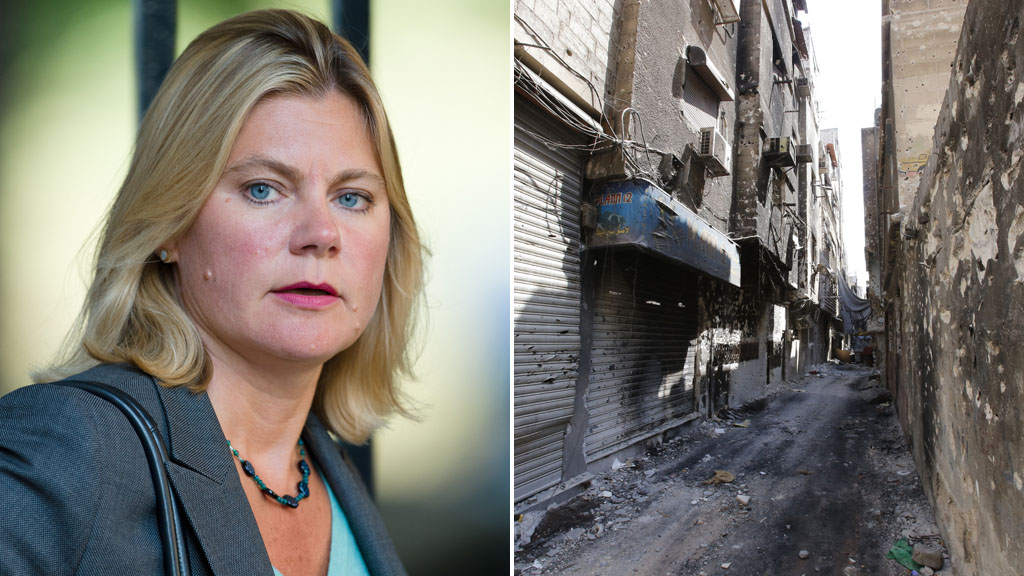UK boosts Syria aid, but access to those in need is blocked
Britain will donate another £100m in humanitarian aid to Syria, Justine Greening says, but on the ground intense fighting is preventing aid from reaching the sick and starving.

The international development secretary announced the extra funds at a United Nations donor conference in Kuwait. The money brings the total donated by the UK to £600m, the largest amount it has ever donated to a humanitarian crisis.
“The world cannot ignore what is happening to the Syrian people,” Ms Greening said. “Britain is determined to play its role in helping the 11 million Syrians who continue to suffer as a result of this crisis.
“As the situation grows worse, the international community needs to make sure the UN has the resources it needs to help these people.”
A week ahead of the Geneva II conference aimed at finding peace in Syria, the conference in Kuwait is calling for commitments from UN members in order to reach a £6.5bn donations target.
On Wednesday, Kuwait pledged a further $500m and the US said it would contribute another $380m.
Trapped in Yarmouk
However, on the same day that the UN was boosting its humanitarian coffers, the difficulties in getting aid to reach those in need was laid bare.
A UN convoy was forced to abort the delivery of food and polio vaccines to the Yarmouk Palestinian refugee camp in Damascus after the Syrian government insist it use a dangerous route through an area of “intense and frequent armed conflict”.
Around 18,000 people are trapped in Yarmouk, a camp in the south of Damascus, and 15 people are reported to have died from malnutrition. The rebel held camp has been under siege by Assad’s forces since last summer.

The UN Relief and Works Agency (UNRWA) said Damascus had authorised a six-truck convoy to deliver food for 6,000 people, 10,000 doses of polio vaccine and medical supplies to the camp, but had “required” the convoy to use the southern entrance to the camp.
UNRWA spokesman Chris Guinness said on Wednesday that this would mean taking the convoy “through an area of intense and frequent armed conflict, in which numerous armed opposition groups, including some of the most extreme jihadist groups, have a strong and active presence”.
When the convoy passed the southern checkpoint, its Syrian government escort sent a bulldozer to clear the road of debris and it was fired on by unknown assailants.
Machine gun fire erupted and one mortar exploded close to the convoy, Mr Guinness said, and UNRWA’s Syrian security detail told the convoy to withdraw.
UNRWA also posted on Twitter that “all we need is access”, saying that it had not been able to get to the people trapped in the Yarmouk camp for 185 days.
All we need is access:
#Yarmouk sealed for 185 days
18,000 #Palestine refugees trapped inside. pic.twitter.com/fUU0f4s4a9
— UNRWA (@UNRWA) January 15, 2014
Aid workers have accused the regime of Bashar al-Assad of hampering deliveries to opposition-controlled areas, and threatening groups with expulsion if they try to avoid bureaucratic obstacles.
As with much in the horrific Syrian civil war, both sides are blaming each other for the blockades to humanitarian access.
The Syrian government says humanitarian access is being thwarted by opposition attacks. Opposition activists say the Assad regime is using hunger as a weapon against its people.
Around half of the Syrian population, 9.3m within the country’s borders and 2.4 million seeking refuge in neighbouring countries, are in need of help.